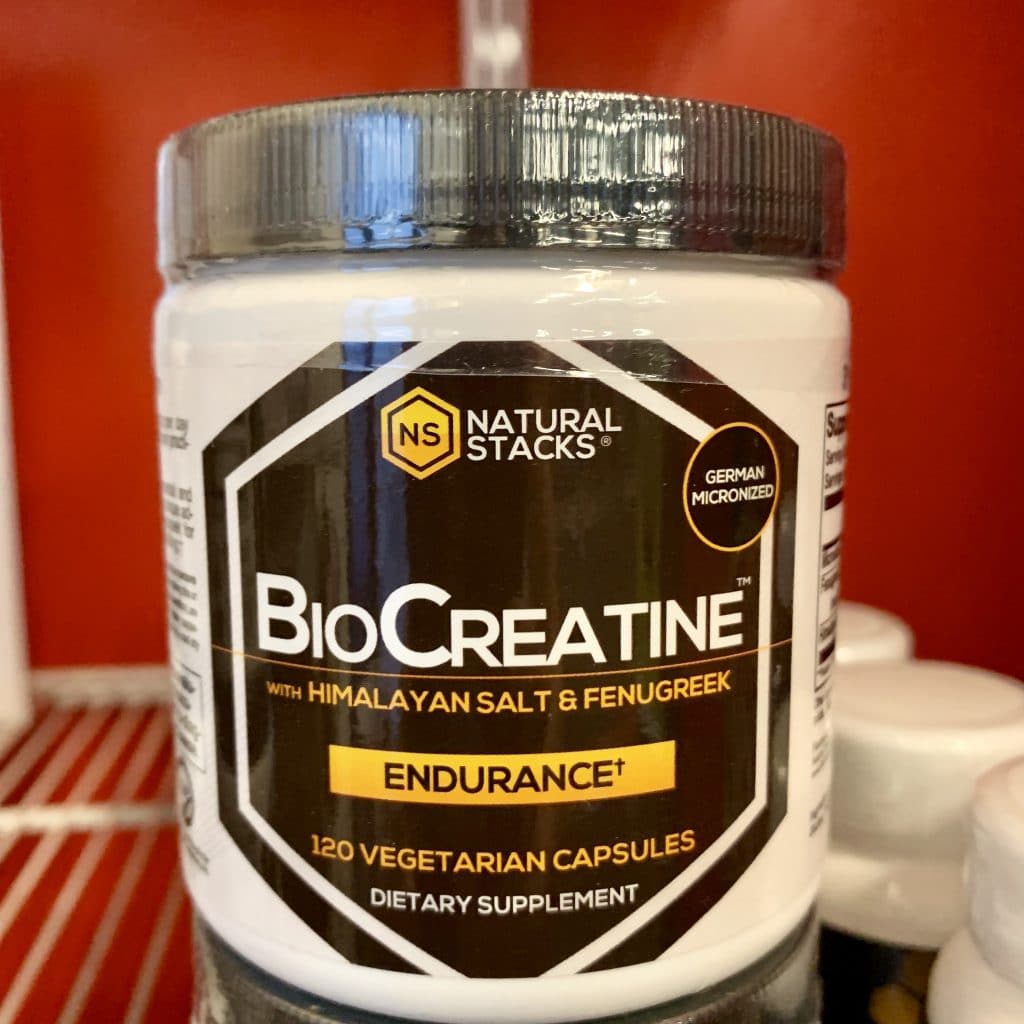Strength athletes first started supplementing with creatine in the ‘90s, and to this day it remains a favorite among power-speed athletes.
WHAT IS IT?
Creatine is a natural substance that turns into creatine phosphate in the body. Creatine phosphate helps make a substance called adenosine triphosphate (ATP). ATP provides the energy for muscle contractions.
The body produces some of the creatine it uses. It also comes from protein-rich foods such as meat or fish. In a normal diet that contains 1–2 g/day of creatine, muscle creatine stores are about 60–80% saturated.
DOES IT WORK?
Unlike many supplements on the market, there’s a huge body of scientific data supporting the efficacy of creatine monohydrate. (It helps that it’s been around for so long.) During the last 3 decades, over 1,000 studies have been conducted and billions of servings of creatine have been ingested.
Here’s what the science says about short-term creatine supplementation (20g/day for 5-7 days):
- Increases total creatine content by 10-30% and phosphocreatine stores by 10-40%.
- Improves maximal power/strength (5-15%)
- Improves work performed during sets of maximal effort muscle contractions(5-15%)
- Improves single-effort sprint performance (1-5%)
- Improves work performed during repetitive sprint performance (5-15%).
- Additionally, it has been reported to promote significantly greater gains in strength, fat-free mass, and performance primarily of high-intensity exercise tasks. (Strength training is one of them).
- 70% of the studies report statistically significant results.
- However, it’s worth noting: creatine supplementation will not improve performance in endurance events.
IS IT SAFE?
First and foremost, dietary supplements fall under a different set of FDA regulations than those covering "conventional" foods and drug products. In other words, you can't always know exactly what's in your supplement, or in what amounts.
The only consistently reported side effect from creatine supplementation has been weight gain.
And last but not least, it’s always a good idea to talk to your doctor before taking any supplement. However, if you have kidney disorders or are at risk of developing kidney disease, you should absolutely talk to a doctor before taking creatine.


